All posts by Léa Peersman Pujol
Diving into content…
> Identity and purpose
Name, age, gender, marital status, address, driving license…
Should I give my Facebook pseudo, my twitter, my personal page? Does my age matter when some 10 years old better master coding and 60 years old are starting companies? In India they have a longstanding specific status for transsexuals and gay weddings are now part of the normal hip. Homes are under study for massive change, should I indicate mine sustainable-proof? Should I write I leave in France, Europe, the world? Driving? My car drives me!
As simple as that, all codes have changed. Should we find a new way of expressing our identity? It is time to use multiples identities and to present the multiples sides of our personas. Mozilla just launched Openbadges to explore this logic.
Moving on to goals and professional wishes now. There are new positions such as “data scientist” or “feel-good manager” that are emerging. The time when adults would ask us what we would like to do when we grow up is long gone. The question has become: what do you want to be today? So, on one hand we see companies’ urge for effectuation in order to guarantee their short-term profitability and this equation will soon be solved by artificial intelligence. On the other hand, we wonder what we humans will do and realize that there is also a personification process going on in job’ descriptions. More and more jobs can be shaped according to how we propose to address the gap or the need we identified. There is more space for creativity, empathy and entrepreneurship. But of course, to be able to deploy our potential and talent as such we need to be trained and capacitated to do so.
> About education
We dearly hope not to have to sit for hours and hours in a classroom listening to a teacher reciting his lesson anymore. Thanks to technology, other learning alternatives are blooming. There is the eLearning gold rush with the moocs (EdX, Coursera, Udacity, FUN,…), there are the more and more numerous conferences and events (TED, the Summit, World Economic Forum, …), there is the peer to peer system spreading thanks to online forums and development of the sharing economy. Information to learn is all there, the focus should be placed on how to search for it, how to bring coherence to it, how to build on and from it. Our resume will not only state what school we attended but should enable us to showcase our learning/teaching potential and how we manage all the tools and methodologies available to expand, transmit and exploit knowledge.
Also, the face of schools is changing quickly. Not only in terms of becoming more immaterial online or in adapting their architecture, but in terms of purpose and usage. Teachers are becoming conductors helping students proceed along the knowledge funnel. And they share this responsibility with many new innovative actors on the educational market. NGOs, alternative private schools, philanthropic programs, museums, laboratories, hackerspaces, fablabs, so many new places where knowledge is being created and transformed. We hope their accessibility will soon increase in order for us all to take advantage of all this suitable opportunities to reveal and boost our potential. Our personal interest, our skills and our educational path will merge and enable us to know ourselves better, to tackle our weaker points and to capitalize on our strengths. We will therefore be more adaptable and we will have many more work-related opportunities. In this process, we will be confronted with many new options and we will for sure need to adjust our orientation and we will most certainly need some appropriate help in doing so.
> About professional experience
The members of the Y generation are meant to change jobs about 14 times in their lives and we see more and more people jumping into entrepreneurship. Working schedules and places are evolving too. Companies are letting their employees work partly from home, innovative actors such as Steelcase are building the co-working spaces of tomorrow, job descriptions are trying to follow the speed of innovation in order to provide organizations with the right skills. In all domains, from medicine to media, from the environment to engineering, from business to social care, from the arts to technology, frontiers are being pushed and with them the need for people to pursue this pioneering effort as well as to develop products and services taking advantage of new discoveries. Our curriculum should therefore take into account all our diverse experiences, starting by mixing our side-activities with the more usual professional ones. We all have to manage complexity, promote our interdisciplinary abilities and our unique faculty to create links between things. We will learn project management skills from a service-learning program; we will expand our adaptability to culturally diverse environments by travelling the world; we will improve of management skills by being a parent; the curriculum of the 21st century should get rid of boxes and compartments as added value will come from the permeability between all our different engagements.
Looks out !
We understand therefore that the content of the 21st century curriculum will be different from what we know. The question now is: what shape will it take? How do you reflect complexity? How do you showcase interdisciplinary and permanently evolving skills and potential?
Inspired by the Design Thinking movement, some talk about Mind Maps, others are thinking about the future of Linkedin and Google groups, perhaps promoting personal branding through self-pages.
When we think about the shape of the cv we also should mention the tools to start building it. Many new personality tests are being implemented such as talenttoday.com. First discover yourself than share it with the world. Our curriculum could be trans-media and include some video, some audio, some imagines, some writing. Our imagination is the limit! The ideal would be for it to become experiential. What would be the ultimate digital me experience?
Let’s stop here for a minute, are companies ready for this? When we think about the future of our curriculum we have to envisage the future of recruitment. Today, the last novelty is for machines to select interesting candidates. So, we would be demonstrating the best of our humanity to confront it to the best of the artificial intelligence? It is clear that organizations are looking for talents, for employees capable of learning fast, adapting smoothly, designing and implementing creatively. Maybe organizations will need to start thinking about the future of recruitment. If machines were the future for recruiting 20st century candidates, what will be the future of recruitment for the ones of the 21st century?
The end or the beginning
We view information as the key to the future. With it nevertheless come many questions about ethics, responsibility and limits, because they always are some. We are in the most rapid, vivid and multiple society that has ever existed. Thinking about the curriculum for the 21st century leads to think about our humanity, our identities, our aspirations, our appreciation, and our purpose. In an age of simplicity but were data is big, how do we express and judge humanity? How do we assemble all our traces offline and online to define ourselves? And more importantly, should we do so?
The ideal curriculum could be fragmented, with some hidden parts even. The ideal curriculum could be Mind Reading and not Ming Mapping. The ideal curriculum lies in our DNA, but with the 3D lent of life upon it. The ideal curriculum is us, but in the future. And let’s not fall into the pit hole of risk management and secured prospective to reassure us all. No, let’s invest in empowerment, in potential development, in innovation tracking, let’s invest in us – but only if we believe.
Today, a machine rejected me. I applied for a job and got confronted with ATS (applicant tracking system). This is when a computer analyzes your cv and decides whether or not you are suitable for the position. This is our present, imagine our future.
The time has come for us to take ownership of this future. We hear about skills, about new jobs, new markets and are trying to keep track of this innovation spiral; or we simply feel left out and are trying not to ask ourselves too many hard questions.
Well, we should. If we want to have a sit at the future’s table, we have to prepare ourselves for this future and get the right passport: the cv of the 21st century.
Where to stand in the digital era…
The digital area is impacting the jobosphere deeply, not only by creating new types of jobs or rending many others obsolete, not only by changing the way to apply for these jobs and the way we are being assessed, but also by profoundly modifying the way we define ourselves and think about the space we wish to occupy in this fast-paced world.
By giving us access to the information, the web confronts us to the old universal questions: who are we? What is our purpose? What is our role? According to the empowering vision of the internet, it should be easy to have our say – through social networks, personal webpages, forums, articles, etc.- and to be able to learn what we need to get where we want – through moocs, digital media, online portfolios, etc. Nevertheless, most people are not familiar with this brand new world, its tools, and its rules. From an egalitarian wish we move on to a more and more elitist society: the ones who master the virtual expansion, and the ones who keep stuck in shortcoming materiality. Indeed, the key to activate the web empowerment prophecy is once again information but not standing on its own. People need a conduit to the future.
A conduit to the future: digital me
In the good old days – today – we used a curriculum to present ourselves. On a piece of paper was standing our active profile, a blend of our identity, of our experience, of our abilities, of our activities. It was all there! All? Really? Curriculums have been socially accepted tools but have never quite managed to figure our potential and the upsides of our differences. In the world of the internet, our ability to connect, learn, share, expand, discover, is crucial and our curriculums should reflect them. The future is more accepting. Even more, the future is nurturing itself from the core of the humanity: empathy, creativity and entrepreneurship. These profoundly human things are what will enable us to continue progressing next to the intelligent machines that we will have built. Machines that will allow us to focus on developing our unique human characteristics while taking care of the rest. Slowly, the educational systems are evolving to focus more on our preparation to such world and life. It will take time but we have to keep trying and, for that, it is essential to keep our goal in mind: we have to become our future self. We have to enhance our human potential, we have to forge our digital identity, we have to proactively take ownership of our future.
A New York, ce sont les enfants qui décident et qui agissent pour changer leur monde. Grâce à l’association Common Cents qui œuvre, depuis plus de vingt ans, à transmettre la passion de l’engagement sociétal aux jeunes générations. Plus de 800 écoles de la ville participent au programme de collecte de pièces jaunes ! L’équipe accompagne ensuite les éducateurs et les jeunes dans leurs choix d’allocation des sommes récoltées avec des outils pédagogiques sans cesse renouvelés. Common Cents permet à ses publics de comprendre les raisons, le fonctionnement et les conditions du succès de l’engagement. L’association appartient au mouvement du Service Learning.
S’engager pour sortir de la crise
En temps de crise, le Service Learning fait des émules ; après le bobo, l’engagé ! Ce mouvement, surtout développé dans le monde anglo-saxon, gagne du terrain en Asie (en Corée du Sud et au Japon notamment) et en Europe (en Espagne avec l’Aprendizaje Servicio et en Allemagne). Les aficionados de l’engagement se multiplient et la tendance gagne même nos organisations. Les nouvelles générations sont ainsi biberonnées à la responsabilité sociétale mais pour autant, l’engagement conserve son statut, à part. Derrière ce regain d’héroïsme du quotidien, se cache ainsi une question de valeur. L’humanité prend petit à petit réellement conscience de ses défis mais de là à déclencher son potentiel d’action à bon escient… Aujourd’hui, la data fait loi. Pour que la prise de responsabilités soit pérenne et efficace, il faudra effectivement en prouver la valeur.
Depuis des années nous tergiversons sur les causes de la récession domino et procrastinons quant il s’agit de proposer des solutions tangibles et durables. Nous cherchons le coupable afin de mieux nous dédouaner. Nous préférons faire porter la responsabilité de la fuite en avant et déléguer celle de la reconstruction, plutôt que de prendre à notre compte la responsabilité d’innover changeant de regard sur les systèmes en place. Et si la responsabilité importante à retenir de la crise ambiante n’était pas celle que l’on croit ?
Certes, repartir de zéro semble préférable pour effacer l’échec et croire en notre potentiel disruptif, mais force est de constater que l’innovation portée par les activistes, les entrepreneurs sociaux, les philanthropes et autres acteurs de changement reste périphérique. Les forces nouvelles ne forment pas encore une alternative viable en tant que telle. Chacun œuvre en parallèle pour proposer une voie meilleure.
Il est donc de notre responsabilité – et nécessité – individuelle et collective d’intégrer ces idées et modèles aux systèmes qui, bien que branlants, résistent et garantissent un certain équilibre à nos sociétés. Pour cela, nous ne pouvons exclusivement nous reposer sur les gouvernants, c’est au contraire l’occasion formidable jouer la carte démocratique et de nous engager.
Apprendre à s’engager
Pour autant, si l’empathie est intrinsèque à notre condition humaine, l’engagement n’est pas inné, notamment celui qui pourra véritablement porter le changement.
La prise de conscience de la gravité des multiples problématiques sociétales globales demeure encore la réalité de trop peu. Ils sont pourtant de plus en plus nombreux à rejoindre les rangs des engagés, individus désirant redonner, organisations soucieuses de leur réputation et parfois même de leur impact. La tendance est à la professionnalisation du secteur social, à l’utilisation d’outils habituellement propres au monde des affaires pour optimiser l’impact de l’engagement et le mesurer. En effet, face à l’ampleur de la tâche, nous devons faire preuve d’organisation pour éviter toute déperdition d’énergie et de moyens. Certains ont donc pris en charge la formation des novices et des amateurs du bien commun. On enseigne maintenant l’intérêt général.
En effet, il ne suffit pas d’éveiller les consciences, de partager les outils, de fournir des compagnons d’engagement et des cadres cléments pour que celui-ci relève de l’évidence. Une seconde nature engageante serait le terreau idéal de la responsabilité intégrée. Ainsi, chacun, et tous ensemble, nous aurions le réflexe naturel d’intégrer notre responsabilité sociétale à nos quotidiens, professionnels et personnels. Alors seulement, nous aurions les moyens d’être agiles, réactifs, efficaces dans la gestion des défis sociétaux qui nous préoccupent. Nous voyons bien l’importance de parvenir à créer cette organisation engageante.
Reste à savoir comment passer d’un désir de mieux ponctuel, à un investissement sérieux récurrent, à un engagement réflexe systémique. Ici, rappelons nous le lien fait par de nombreux Grands Hommes, tels Nelson Mandela, entre le changement social et l’éducation. La pédagogie permet la sensibilisation et la transmission des moyens d’action, elle se veut égalitaire, ouverte et accessible. Nous venons de voir l’importance d’apprendre à s’engager pour y réussir. Il s’agit là de la première partie vertueuse du Service Learning.
S’engager pour apprendre
La seconde relève des effets de la dynamique d’engagement sur l’apprentissage même. Pour que l’intérêt général s’inclus naturellement dans nos comportements, il devrait participer à notre façon d’apprendre. Apprendre à s’engager oui, mais s’engager pour mieux apprendre semble être la clé de l’organisation engageante.
En France, l’association l’Ecole de la Philanthropie (www.lecoledelaphilanthropie.org), s’est créée il y a 3 ans à cet effet. Les Fondations Edmond de Rothschild m’avait encouragée, alors que j’y travaillais en tant que chef de projet responsable de l’éducation, a y incuber et à développer ce premier programme éducatif d’engagement citoyen. Il s’agissait de permettre aux jeunes de s’engager pour ensuite rapatrier les fruits de ce processus dans leur quotidien d’élèves. En œuvrant pour l’intérêt général ils apprennent à a analyser un contexte, à collaborer, à faire preuve de créativité, à mélanger empathie et efficacité, à prendre en compte la diversité, à développer leur curiosité, à présenter leurs idées, etc. Ils comprennent pourquoi la grammaire, les langues, les mathématiques sont essentiels, ils réalisent qu’ils sont capables d’avoir un impact positif sur le monde, ils se sentent valorisés et apprécient davantage leur statut d’apprenants. L’engagement a modifié, vers le mieux, leur manière d’apprendre et avec elle leur potentiel à avancer et à construire.
Mon objectif au travers de l’Ecole de la Philanthropie était ainsi de montrer comment l’engagement peut être créateur de valeur pour les individus et, par transitivité, pour les organisations dans lesquelles ils évoluent, que ce soit une école ou une entreprise.
L’engagement, nouveau levier de performance et d’impact
Les entreprises développent des programmes de mécénat de compétences, des stratégies de responsabilités sociétales et des programmes de développement durable. Elles font cela pour des raisons d’image, par obligation légale et comptable, par conviction, pour motiver leurs collaborateurs ou afin d’incarner certaines de leurs valeurs. Elles sont de plus en plus nombreuses à utiliser l’engagement comme blason. En utilisant les résultats de l’Ecole de la Philanthropie, il serait intéressant d’étudier, au regard de toutes ces dynamiques, l’état des systèmes apprenants au sein de ces organisations. Nous sommes à l’ère de l’information et la formation des salariés est un levier de performance et de compétitivité précieux. Si une dynamique d’engagement pouvait faciliter l’apprentissage, il serait alors d’autant plus intéressant pour les entreprises d’œuvrer pour l’intérêt général. Les collaborateurs s’engagent, ils découvrent et maîtrisent de nouvelles compétences et font éclore leurs potentiels sous un jour nouveau. La performance humaine et économique de l’entreprise en serait augmentée. L’organisation bénéficie donc directement de ce processus et est par ailleurs, par leur intermédiaire, capable de gérer une part de responsabilité sociétale plus importante. L’organisation est engageante.
De l’échelle et l’intérêt de l’engagement
Les défis sociétaux sont tels que nous n’avons pas d’autres choix que de partager les responsabilités de réponse ; entre les acteurs du changement professionnels, les gouvernements et instances internationales mais aussi entre nous tous, avec les organisations que nous formons. Pour réussir, nous devons apprendre à nous engager. Pour être efficaces et garantir la qualité de notre impact d’une part ; pour pouvoir extraire un potentiel renouvelé, une valeur ajoutée et donc un intérêt consistant au changement de cette dynamique d’autre part. Le cercle vertueux associant engagement, éducation, impact et bénéfices pourrait se mettre en place dans le cadre d’une organisation engageante.
L’organisation la bonne échelle du changement ? L’engagement, nouvelle échelle de valeur ?
MON ERE DIGITALE
La transformation du management dans l’entreprise… Accompagner les évolutions
organisationnelles, managériales et culturelles en faisant le pari de l’intelligence collective, de la
confiance et du développement de l’intrapreneuriat… Raisonner en écosystèmes ouverts et
mieux concilier performance, reconnaissance de chacun, et innovation…
MA PROBLEMATIQUE
Comment contribuer à une refonte des modes de management et d’organisation dans une
période de profondes transformations engendrées par la révolution numérique ?, quelle place
l’éducation et le rapport à la citoyenneté doit prendre dans cette métamorphose ?
Prendre appui sur l’histoire pour bâtir le futur.
MA CLE D’ORIENTATION
L’envie.
Avoir l’envie de s’engager dans un projet que l’on porte en soi et avancer vers sa concrétisation,
c’est le meilleur moyen d’atteindre l’impossible.
Travailler avec les autres, faire œuvre de coopération.
S’enrichir de l’expérience des autres sans jamais renier sa singularité.
MON BONUS
La soif d’apprendre.
La croyance dans la force de l’apprentissage par l’expérience, par le droit à l’erreur.
Utiliser son pouvoir d’imagination pour agir sur le réel.
ME CONTACTER
Twitter @Arvalier
MON ERE DIGITALE
Mon ère digitale commence chaque matin aux aurores…et finis chaque soir quand tous dorment ; et j’imagine que je ne suis pas la seule ! Le digital change tout :
- nos métiers, nos entreprises, mais aussi, nos façons de travailler, d’apprendre, (n’importe où, en télétravail, dans les transports, …)
- mais aussi nos façons de penser…aux autres ! je veux toujours tout partager avec des amis que parfois je n’ai jamais rencontré IRL (In Real Life) mais sur qui je peux compter en vrai
- mes torticolis : couchée, debout, en marchant: la tête penchée sur le smartphone
- mes choix de transport urbain : le bus ou la marche permettront certainement de mieux capter
- jusque ma vie (très) perso : « mais enfin, à qui écris-tu ? »
MA PROBLEMATIQUE
Mes problématiques : le big data et les femmes !
Le big data, le fait de ne plus pouvoir être maitre de ses données, que la marque des nouveaux riches sera de ne pas avoir à ‘commercialiser’ ses données et de pouvoir faire des choses sans qu’aucune marque ne puisse savoir où vous êtes, avec qui, quelle musique vous écoutez, et à quel tempo bat votre cœur… ou pire encore, vous dire à quel tempo devrait-il battre
Et Les femmes : grandes exclues de tout, du monde de l’entreprise, des chefferies en tout genre (comex, codir, CA), de la plupart des métiers rémunérateurs, et des formations éponymes !
MA CLE D’ORIENTATION
Les autres! vos idées, votre dynamisme. Je transforme toute cette énergie en action concrète.
MON BONUS
Créative, impliquée, et adorant le big data, l’enseignement, la danse, le piano, les gâteaux au chocolat…même en miette dans les mains de mes cinq enfants
ME CONTACTER
Linked In https://www.linkedin.com/in/emmanuellejardat – Twitter @emmanuellejarda – facebook : https://www.facebook.com/emmanuelle.tranngocjardat
MON ERE DIGITALE
La transformation que le numérique impose à tous les niveaux de la société. Le changement dans le quotidien du citoyen, du salarié, des apprenants, enfants et adultes, les impacts sur l’économie, … Je suis passionnée par l’analyse et l’anticipation de tout ce qui peut être amélioré et simplifié grâce au numérique, à tous les champs du possible qui s’ouvre à nous tous.
MA PROBLEMATIQUE
Dans un monde en perpétuelle évolution, de plus en plus rapide, l’éducation est plus que jamais un élément clef dans la construction de notre société. Pour la formation initiale tout comme la formation continue, il est difficile de s’orienter.
Comment choisir la meilleure offre formation, s’assurer qu’elle réponde bien aux besoins ? Comment s’assurer de la bonne montée en compétence au sein d’une entreprise pour ne pas perdre les talents et construire une relation employeur / employé riche et pérenne ? Comment s’assurer que chacun s’épanouisse dans ce qu’il fait ?
Redonner le pouvoir à tous du choix de la connaissance.
MA CLE D’ORIENTATION
Ce qui m’entoure, usually Out Of the Box!
L’observation, la curiosité, la recherche, … L’information et la connaissance sont soit en nous soit autour de nous. Il faut être persévérant pour trouver son parcours. Quoi qu’on en dise, quoi qu’on en pense, chaque parcours est unique. Même si souvent de nombreuses lignes sont déjà tracées, il faut aller hors des sentiers battus pour innover et trouver ce qui convient le mieux. Cela se fait encore mieux en coopération. L’intelligence collective reste une clef incontournable.
MON BONUS
Mon dynamisme, ma soif d’apprendre et de partager.
ME CONTACTER
MON ERE DIGITALE
La transformation des systèmes éducatifs, l’évolution des outils/méthodes/contenus pédagogiques, les changements des métiers,… L’avènement de l’économie de la connaissance me fascine et me questionne.
MA PROBLEMATIQUE
Comment préserver l’égalité des chances au 21ème siècle? Comment garantir l’adaptation des démocraties et des citoyens? Quelles orientations conseiller pour que chacun soit libre de construire son parcours de vie de façon réfléchie et heureuse?
MA CLE D’ORIENTATION
L’autre.
Etre attentif aux autres autour de soi est la meilleure façon d’apprendre, de comprendre, et d’avancer soi. Il faut identifier des modèles porteurs et complémentaires et penser ensuite son parcours de façon inédite. Les opportunités sont toujours dépendantes de l’humain, il faut donc savoir échanger, partager, et être un maître du « co ». Coordination et collaboration sont des passeports d’avenir.
MON BONUS
La curiosité.
Ne jamais cesser d’apprendre, de soi, des autres, du monde. Cela permet l’imagination, le plus grand des pouvoirs.
ME CONTACTER
Web - Facebook – Linked In – Twitter
Dear Mirror Networkers,

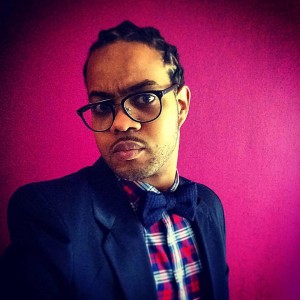
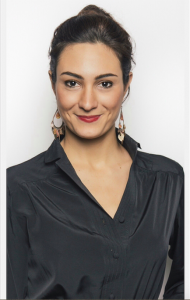
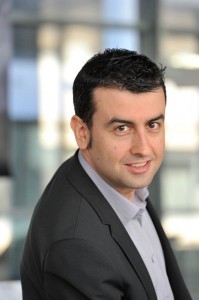
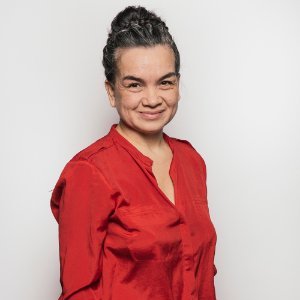
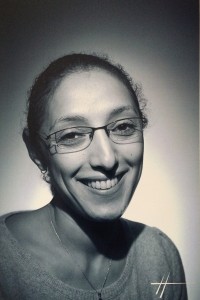
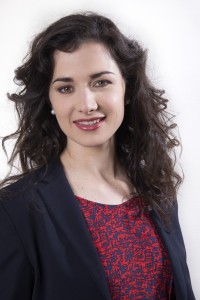
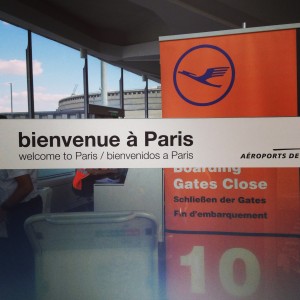



Commentaires récents